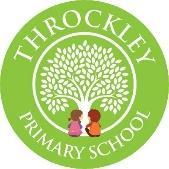Throckley Primary School History Overview




















EYFS Year 1 Year 2 Year 3 Year 4 Year 5 Year 6
Children experinece history through the EY strand, ‘understanding the world.’
Children will learn about different people within societ, such as the police and firefighters. They will be able to talk about the roles these people have.
They will be able to spot changes between the past and present, through exploring objects from different periods.






Children will understand the past through characters, stories and settings that draw upon our key substantive concepts such as, empire.
They will be able to describe their immediate environment.
Children can discuss their local area, recognising how it has changed over time.
Children will be able to describe some similarities and differences between this country and other countries.
Terrific trains! How do we get around? Local history study.
Significant person: George Stephenson.
Innovation: Creation of new forms of transport specifically trains.
Civilisation: What is the most popular form of transport we use?
Links to DT- Structures topic. How to build something successful like George Stephenson?











How have explorers changed our lives?
Significant people: Neil Armstrong and Mae Jemison.
Innovation: Sequencing moon landing and life. Compare transport and travel.
Innovation: Different forms of transport, trains and spaceships
New transport – trains. Y1 (Autumn)
Chronology unit. Change in living memory. Focusing on the British monarchy. Who was Queen Elizabeth II? Building on knowledge of sequencing events. Key events within their own lifetime.
Empire: British monarchy.
Moon landings. Y1 (Spring)
Why was Grace Darling a hero? Local history study.
Significant person: Grace Darling
Civilisation: 1830s to now. Education, family size, home and gender. Sequencing events.
Empire: Key events in monarchy. Y1 (Summer)
Links to PSHE- Family structure. Comparing my family to Grace Darling’s. A family in the 1800s.
How did civilisation change during the Stone, Bronze and Iron Age?
Innovation: Change over 3 prehistoric time periods. Weapons/use of resources, language, money/trade and travel, land use beliefs.
















The Great Fire of London. Y2 (Summer)
Links to art- cave art unit.
Was Ancient Greek society successful?
Significant person: Alexander the Great.
Civilisation: Success and legacy of Greek society.
Innovation: Greek inventions and their impact on us today.
Empire: Why did the Greeks feel they needed to expand their ideas?
Civilisation across EuropeRomans/Greeks. Similarities and differences.
Egyptians Y3 (Spring)
How did our local area affect the Battle of Newburn Ford?
Local study
Civilisation: causes of conflict and impact on Newcastle post conflict.
Empire: Tension between the English and the Scots.
Empire Y4, tension between English and Irish, compare to tension between Scots and English.
Victorians Y4 (Summer)
Links to R.E- Exploration of religion at the time. Henry VIII reformation.
How did conflict affect society during WW2?
Civilisation: causes of conflict and impact on life at the time.
Empire: Hitler’s attempt to expand the German Empire into Europe. Why did Britain have so many allies? Explore the participation of other countries in WW2.
Empire Y3 Victorians, is Empire a good thing for everyone? Is it fair?
Battle of Newburn Y5 (Autumn)
Why will we remember David Attenborough?
Significant person: David Attenborough.
Innovation: How his documentaries have changed with technology improvement. Chronology of his lifetime. Key events.
Grace Darling Y2 (Autumn)
Should we celebrate the Ancient Egyptians?
Significant people: Howard Carter and King Tutankhamun.
Civilisation: Why they developed their civilisation around the Nile.
Innovation: Inventions and their impact today.
Stone, Bronze and Iron (Y3 Autumn)
What can Pompeii tell us about Roman life?
Civilisation: Pompeii as a primary source/use of sources primary and secondary.
Empire: What was life like in a Roman city?
Greeks Y4 (Autumn)
Links to maths- Roman numerals introduction.
How has the Maya civilisation influenced the modern world?
Civilisation: Religion, mythology, architecture, daily life. Evaluate sources.
Civilisations beyond Europe. Compare to the Romans and Greeks.
How has the Earth’s climate changed since the 1800s?
Civilisation: Our impact on our world, how modern societies have influenced the climate. Choices we have made.
Sequencing and chronology.
Innovation: New inventions that will help the planet.
David Attenborough Y1 and Y2
Links to maths- graphs exploring pollution. Links to geographypollution pictures.
Who was to blame for the Great Fire of London?
Significant person: Samuel Pepys.
Civilisation: Why did the fire happen? Structure of London.
Innovation: How London changed after the fire.
Comparing different civilisations to our own. 1830s with Grace Darling and 1666 London to present day.
David Attenborough Y2 (Spring)
Should the Romans have invaded Britain?
Significant person: Boudicca.
Empire: How can one person, for example the Roman Emperor make the decisions for a whole country/empire?
Y3 - Compare to the Egyptian Empire.
Y1- Monarchy and Emperor.
Egyptians Y3 (Spring)
The Victorians Did the Victorian Empire benefit everyone?
Significant people: Queen Victoria and Charles Dickens.
Empire: What was life like for different children of the Empire?
Empire: Y1 monarchy and Y4 Romans.
Pompeii Y4 (Spring)
Barbaric or civilised: How did the Vikings develop over time?
Innovation: Improvements made to trade/society.
Empire: Invasion of Britain, treaty with the Anglo Saxons.
Maya civilisation Y5 (Spring)
How fierce were the AngloSaxons? A study of AngloSaxon battle strategies.
Empire: How did AngloSaxon battle strategies help them expand their Empire?
Innovation: Government. Sophisticated system of taxing and rule.
Vikings Y5 (Summer)
